Welcome to a world where the soil sings with life and your garden blossoms with vibrant abundance! Whether you’re just planting your first seed or have been nurturing plants for years, “Best Fertilizers for Organic Gardens” is your key to unlocking the full potential of your green oasis. This guide is designed to empower you with knowledge and confidence, making the journey of organic gardening as rewarding as the bountiful harvests you’ll soon enjoy.
In the ever-evolving art of gardening, understanding how to feed your plants naturally is crucial. With this carefully curated list, you’ll discover the most effective organic fertilizers that not only enrich your soil but also nurture your plants with the essential nutrients they crave. By embracing these organic solutions, you’ll not only boost plant health and yield but also foster an eco-friendly environment right in your backyard. Let this guide be your companion in creating a lush, thriving garden that both delights the senses and sustains the earth.
Compost Tea (Nutrient-Rich Liquid Feed)
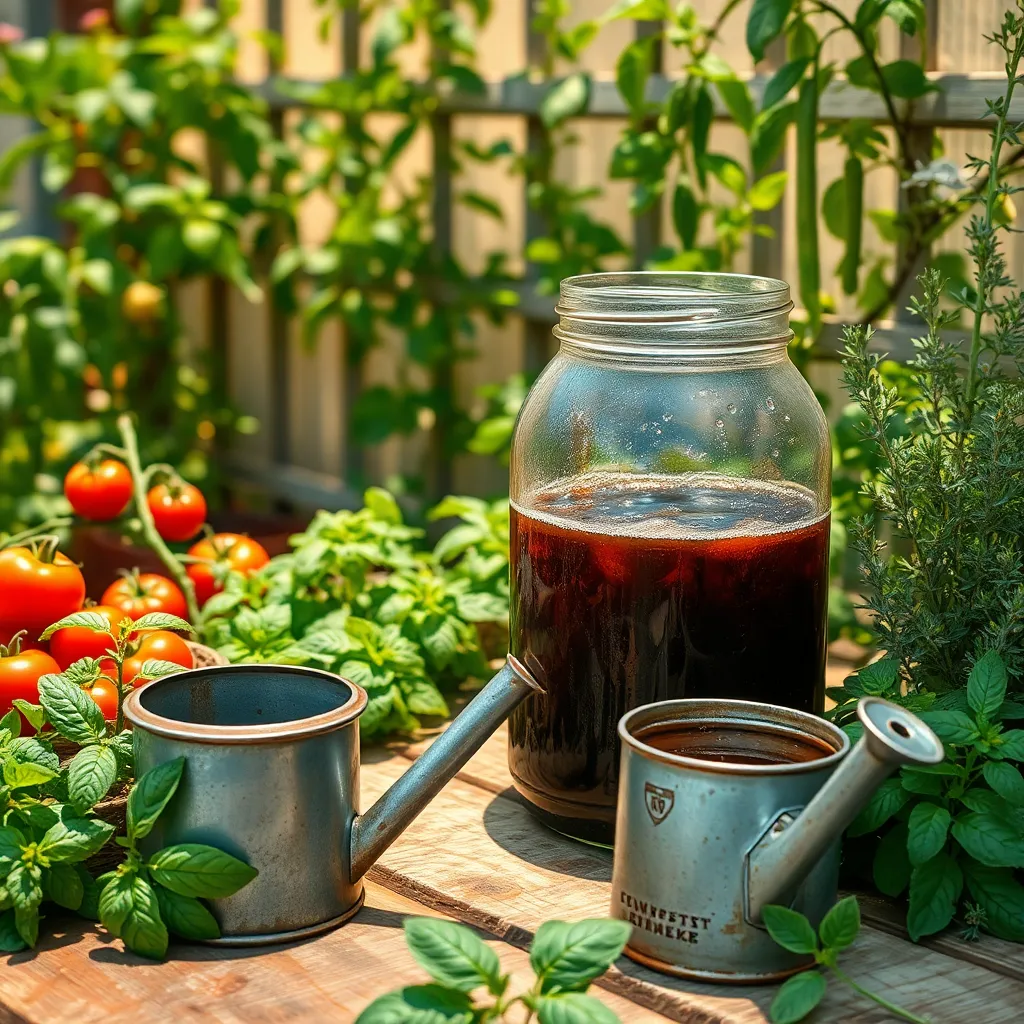
Compost tea is a powerful, nutrient-rich liquid feed that can significantly boost the health of your organic garden. It is made by steeping compost in water, which extracts beneficial microorganisms and nutrients that are essential for plant growth.
To make compost tea, start by filling a large container with non-chlorinated water and adding a porous bag filled with compost. Let the mixture steep for 24 to 48 hours, stirring occasionally to ensure that oxygen reaches the microorganisms, promoting their growth.
Applying compost tea is simple: use it as a foliar spray or a soil drench. Foliar spraying helps leaves absorb nutrients directly, while soil drenching delivers the nutrients straight to the roots, enhancing overall plant vigor.
For best results, apply compost tea early in the morning or late in the afternoon to avoid leaf burn from the sun. This timing allows the plant to absorb nutrients more efficiently during cooler parts of the day.
Advanced gardeners can experiment with adding specific ingredients like kelp or fish emulsion to their compost tea to customize the nutrient profile for particular plants. This approach can optimize the growth of plants with specific nutrient needs, such as tomatoes or roses.
Bone Meal Fertilizer (Phosphorus Boost for Root Growth)
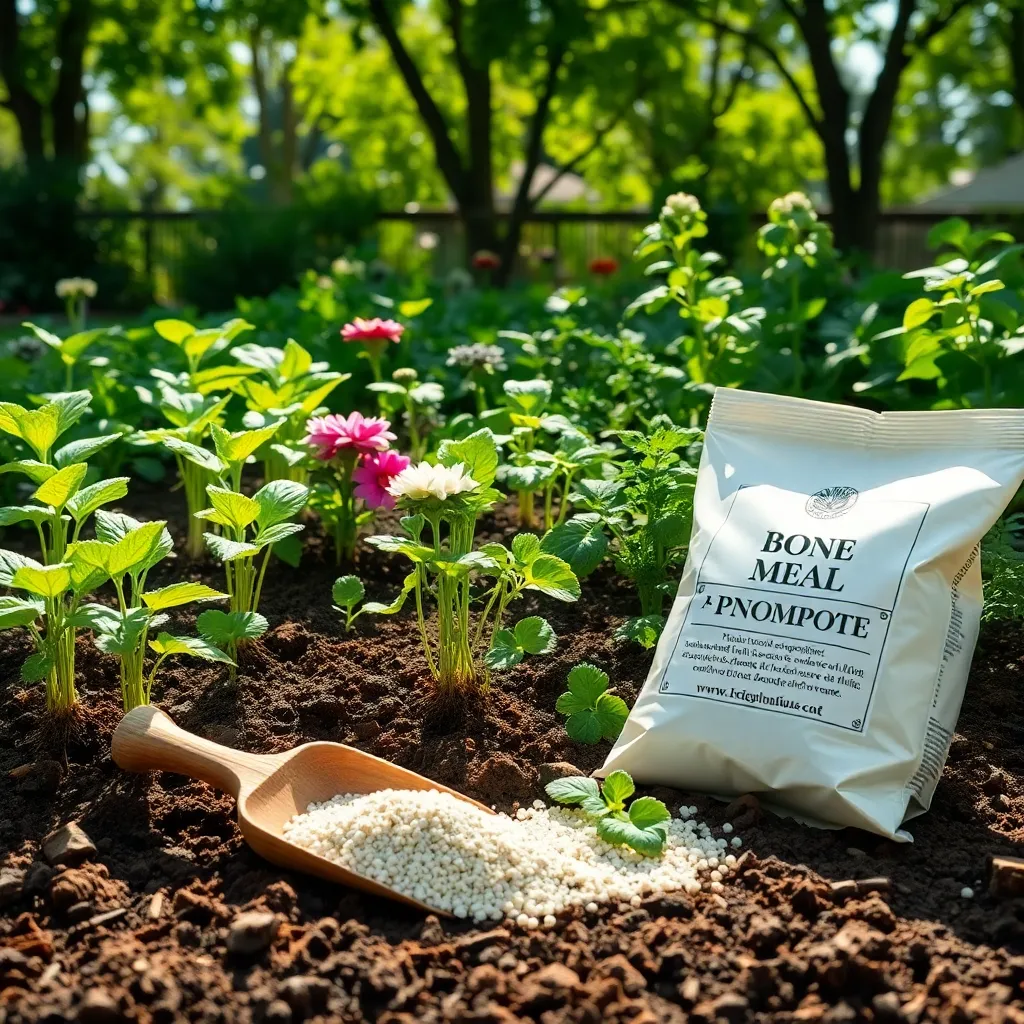
If you’re looking to enhance your garden’s root system, bone meal fertilizer is an excellent choice. Rich in phosphorus, it provides essential nutrients that promote strong root development and flowering.
To apply bone meal, sprinkle it around the base of your plants and gently work it into the topsoil. This slow-release fertilizer is particularly beneficial for bulbs and perennials, ensuring they have a steady nutrient supply throughout the growing season.
For best results, consider using bone meal when planting new seedlings or when transplanting established plants. It can be combined with other organic materials to create a balanced nutrient mix that supports overall plant health.
Experienced gardeners might mix bone meal with compost or other organic fertilizers to tailor nutrient content to specific plant needs. Ensure soil pH is slightly acidic to neutral (around 6.0 to 7.0) for optimal nutrient uptake.
Seaweed Extract (Mineral-Rich Plant Growth Enhancer)
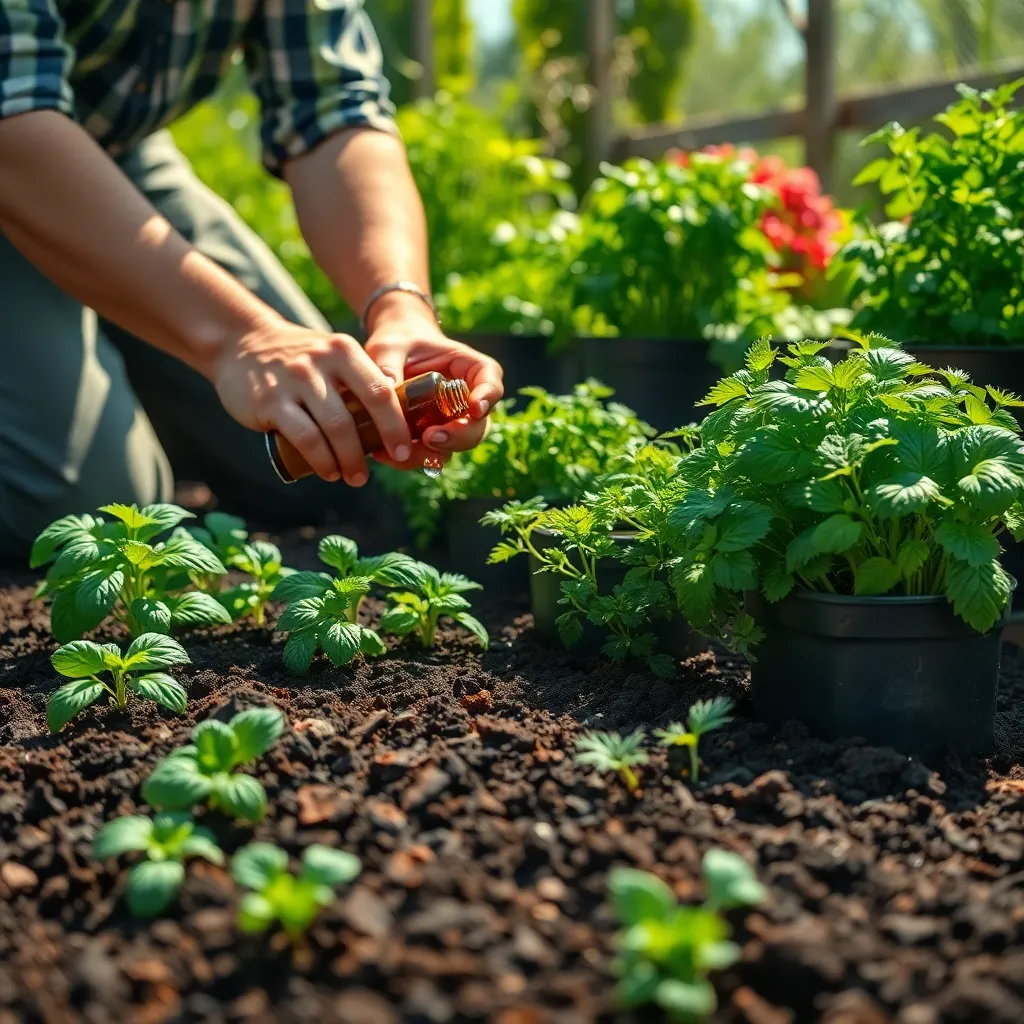
Seaweed extract is a fantastic addition to organic gardens, providing a natural and effective way to boost plant growth. It is rich in essential minerals, such as potassium, nitrogen, and phosphorus, which help improve plant health and resilience.
When using seaweed extract, apply it as a foliar spray or soil drench for optimal results. Foliar applications allow plants to absorb nutrients directly through their leaves, while soil drenches improve root uptake and soil health.
Beginners will find seaweed extract easy to use, as it generally comes in concentrated liquid form that can be diluted with water. For best results, apply it every two to four weeks during the growing season, ensuring that both foliage and soil are well-covered.
Experienced gardeners can experiment with combining seaweed extract with other organic fertilizers to enhance nutrient availability. Mixing seaweed with compost tea or fish emulsion can create a comprehensive nutrient feed, promoting vigorous growth and increased yield.
Fish Emulsion Fertilizer (Fast-Acting Nitrogen Source)
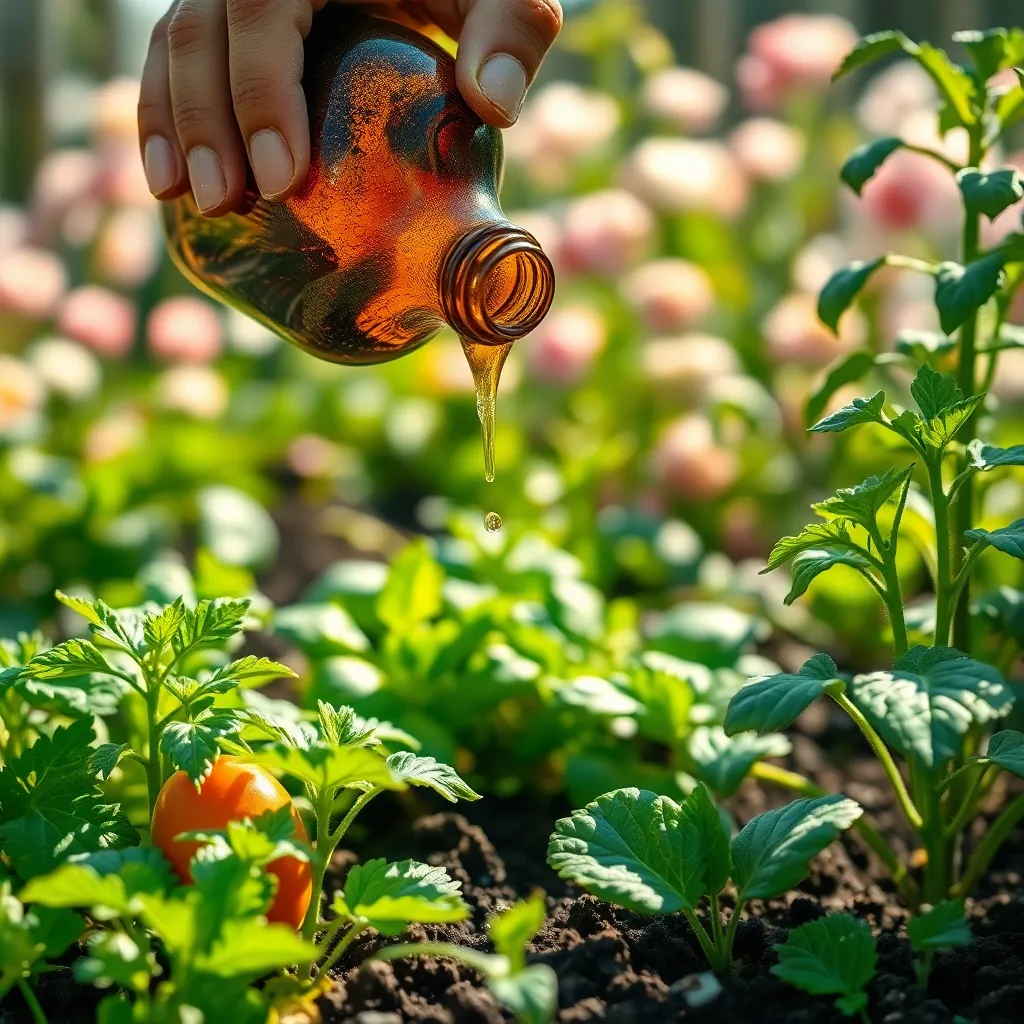
Fish emulsion fertilizer is an excellent choice for gardeners seeking a fast-acting source of nitrogen. This organic fertilizer is derived from fish by-products and provides a quick boost to plants needing a nutrient lift.
Applying fish emulsion is straightforward and highly effective. Simply dilute the emulsion with water as per the package instructions, and apply it directly to the soil or as a foliar spray for rapid absorption.
For beginners, it’s important to note that fish emulsion is especially beneficial for leafy greens like lettuce and spinach, which thrive on nitrogen-rich feeding. Use it every two to three weeks during the growing season to encourage robust leaf growth.
Experienced gardeners can use fish emulsion to amend soil in preparation for planting, ensuring a nutrient-rich environment from the start. Additionally, incorporating it into a compost tea can enhance its benefits, promoting healthy microbial activity in the soil.
Alfalfa Meal (Natural Growth Stimulant with Tricantanol)
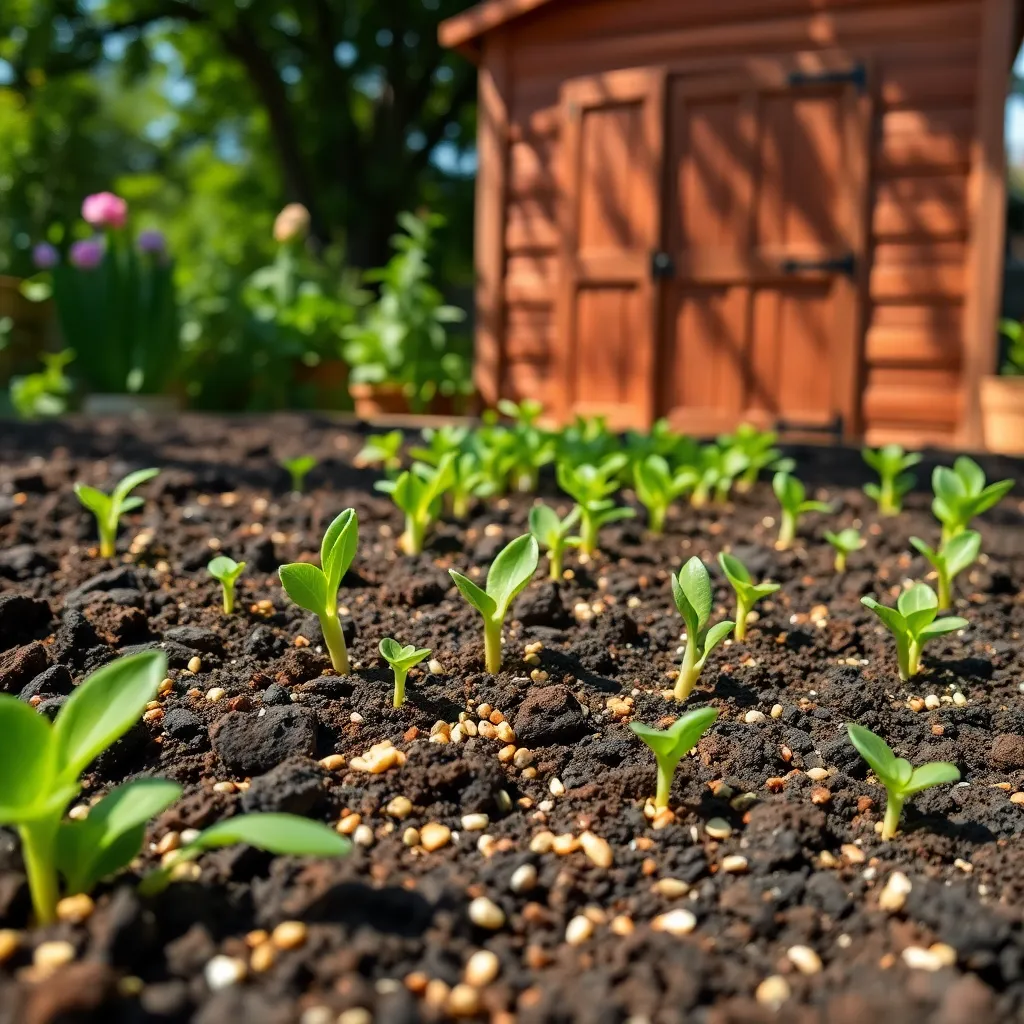
Alfalfa meal is a fantastic organic fertilizer known for its ability to promote healthy plant growth by releasing nutrients slowly over time. Rich in nitrogen, phosphorus, and potassium, it enhances soil fertility while also providing a boost of tricantanol, a natural growth stimulant.
To make the most of alfalfa meal, incorporate it into the soil before planting or use it as a top dressing around established plants. It’s especially beneficial for root vegetables and leafy greens, giving them the essential nutrients they need for robust growth.
Beginners will find alfalfa meal easy to use, as it doesn’t burn plants like some stronger fertilizers can. Simply sprinkle it around your plants and lightly work it into the soil, then water thoroughly to help release the nutrients.
For advanced gardeners, alfalfa meal can be used to create a nutrient-rich compost tea. Mix a cup of alfalfa meal with a gallon of water, let it steep for a few days, and then apply the tea to your garden to give plants an extra boost.
Conclusion: Growing Success with These Plants
In this enlightening exploration of the best fertilizers for organic gardens, we’ve delved into five key concepts that can transform your gardening—and relationship—experience. First, understanding the unique needs of your garden parallels recognizing your partner’s needs. Second, selecting the right organic fertilizers is akin to nurturing your relationship with the nutrients it craves. Third, timing is everything; just as with feeding your plants, knowing when to give and take in relationships is crucial. Fourth, diversity fosters resilience, whether in your soil or your connections. Lastly, patience and persistence are the bedrock of flourishing gardens and relationships.
Now, take immediate action by choosing one relationship aspect to nurture today, whether it’s spending quality time or communicating openly. As you plan to cultivate your personal connections, remember to save or bookmark this article for future reference. It will serve as a handy guide whenever you seek inspiration or guidance in your journey.
Embrace these principles, and watch your relationships bloom alongside your garden. By investing in these small, consistent actions, you’re paving the way for lasting relationship success and a flourishing future.
